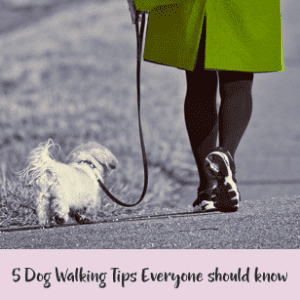Before adopting a dog, it is important to consider factors such as the energy level of the dog, how much activity it currently receives, and whether it will fit into your lifestyle. Knowing the breed or breeds of the dog can also help you understand how much time you will need to dedicate to exercising it.
It is essential to avoid stressful interactions during the initial period and give the dog time to adjust and settle in. Prior to bringing home a new furry family member, it is recommended to prepare yourself and your home, spend time with the dog beforehand, pet-proof your space, find a local veterinarian, and consider pet insurance.
Additionally, introducing the dog to other pets and finding a good dog trainer can contribute to a smooth transition.
:max_bytes(150000):strip_icc()/thingstoknowbeforegettingpetrabbit-bcf4c374df794c829d36ccfc8d42a7df.png)
Credit: www.treehugger.com
Understanding Dog Adoption
Before adopting a dog, there are 12 important things you should know. These include understanding the dog’s energy level, the amount of exercise it requires, and how to create a calm environment for them. It’s also crucial to spend time with the dog before bringing them home and to pet-proof your living space.
The Benefits Of Adopting A Dog
Adopting a dog can be a truly rewarding experience that brings immense joy and love to your life. Here are some of the benefits of dog adoption:
- Dogs provide unconditional love and companionship.
- Adopted dogs often have a deep sense of gratitude and are incredibly loyal.
- They can help reduce stress and anxiety, improve mental health, and provide emotional support.
- Adopting a dog can improve your physical health as they require regular exercise, promoting an active lifestyle.
- It allows you to make a difference in a dog’s life by giving them a second chance at a loving home.
- Adopting a dog from a shelter or rescue organization helps combat animal overpopulation and supports the important work these organizations do.
Common Misconceptions About Dog Adoption
There are several misconceptions surrounding dog adoption that prevent some people from considering it as an option. Let’s address these misconceptions:
- Adopted dogs have behavioral issues: While it’s true that some adopted dogs may have experienced trauma or neglect in the past, many of them can still be loving companions. Proper training, socialization, and patience can help address any behavioral issues that may arise.
- All shelter dogs are mutts: While there are certainly many mixed breed dogs available for adoption, shelters and rescue organizations also have purebred dogs. If you have a specific breed in mind, you can often find them in shelters or breed-specific rescue groups.
- Adopting a dog means getting an older dog: Although there are older dogs available for adoption, many shelters also have puppies and younger dogs. You can find a dog of any age, size, or breed through adoption.
- Adopted dogs are damaged: Dogs are incredibly resilient, and with love, patience, and proper care, they can overcome any past traumas. Many adopted dogs go on to live happy and fulfilled lives with their new families.
By understanding the benefits of dog adoption and dispelling common misconceptions, you can make an informed decision about whether adopting a dog is the right choice for you.

Credit: spca.bc.ca
Financial Considerations
Adopting a dog is an exciting and fulfilling experience, but it’s important to consider the financial responsibilities that come with it. From calculating the cost of owning a dog to budgeting for food, veterinary care, and other expenses, being prepared will ensure a smooth transition for both you and your new furry friend.
Calculating The Cost Of Owning A Dog
Before adopting a dog, it’s crucial to have a clear understanding of the financial commitment involved. Owning a dog involves various expenses, such as adoption fees, vaccinations, training, grooming, and basic supplies. Additionally, don’t forget to factor in recurring costs, including food, toys, annual vet check-ups, flea and tick prevention, and emergency medical care.
Budgeting For Food, Veterinary Care, And Other Expenses
To ensure you can provide the best care for your new furry companion, it’s essential to establish a budget for their needs. Research the average costs of dog food, particularly considering their size and dietary needs. Veterinary care, including routine check-ups, vaccinations, and potential medical emergencies, should also be factored into your budget.
If you’re unsure where to start when creating a budget, consider making a spreadsheet or a table to outline the estimated monthly costs of each expense category. By doing this, you can easily see how much you need to set aside for food, grooming, vet visits, and other necessities.
Another important financial consideration is the cost of unforeseen circumstances. Dogs are prone to accidents and illnesses, so it’s wise to allocate a portion of your budget for unexpected veterinary expenses. Alternatively, you can also look into pet insurance options to help cover these costs.
Remember, being financially prepared is not only important for your dog’s health and well-being but also for your own peace of mind. Having a clear understanding of the financial responsibilities will enable you to provide the best possible care for your new four-legged family member.
Preparing Your Home And Lifestyle
Preparing Your Home and Lifestyle Before Adopting a Dog is crucial. From understanding the dog’s energy level and exercise needs to creating a calm environment and establishing a routine, these 12 things will help you make a smooth transition and ensure a happy and healthy life for your new furry family member.
Creating A Safe And Comfortable Space For Your New Dog
Before bringing home your new furry friend, it’s important to create a safe and comfortable space for them to thrive in. Here are a few key steps to ensure your home is dog-friendly:
- Remove any hazardous items or plants that could be harmful to your dog.
- Secure loose cords, wires, and any other potential choking hazards.
- Designate a specific area of your home as your dog’s personal space, complete with a cozy bed and blankets.
- Set up a water and food station in a quiet area where your dog can easily access their meals.
- Provide plenty of stimulating toys and activities to keep your dog entertained and mentally stimulated.
Adjusting Your Daily Routine To Accommodate A Dog
Adopting a dog means making some adjustments to your daily routine. Here are a few things to consider:
- Set aside time for daily exercise and playtime to keep your dog physically and mentally active.
- Plan regular feeding times to establish a routine and ensure your dog’s nutritional needs are met.
- Factor in additional time for bathroom breaks and housetraining, especially during the initial adjustment period.
- Consider hiring a dog walker or enlisting the help of a trusted friend or family member if your work schedule doesn’t allow for regular breaks.
Considering Your Living Situation And Compatibility With A Dog
Assessing your living situation and compatibility with a dog is crucial before adopting. Here are some important factors to consider:
| Lifestyle | Living Situation |
|---|---|
| Determine if you have enough time and energy to devote to a dog. | Ensure your living space is suitable for a dog, whether it’s a house with a fenced yard or an apartment with nearby dog-friendly areas. |
| Consider your outdoor activities and hobbies – will they align with your dog’s needs and exercise requirements? | Check if your landlord allows pets and if there are any breed or size restrictions. |
| Think about your travel plans and whether you have reliable pet care options in place. | Take into account the noise level and pet policies in your building or neighborhood. |
By thoroughly preparing your home and adjusting your lifestyle accordingly, you’ll create the ideal environment for your new furry companion.
Training And Socialization
Training and socialization are crucial aspects to consider before adopting a dog. This ensures that your new furry family member will be well-behaved and adaptable to a variety of situations, making them a great addition to your household.
The Importance Of Training For Dogs
Training is an essential aspect of owning a dog, as it helps to establish a strong bond between you and your furry companion while ensuring their safety and the safety of those around them. Training provides dogs with mental stimulation, which is crucial for their overall well-being. It helps them understand boundaries, rules, and expectations, making them well-behaved and obedient.
Basic Obedience Commands To Teach Your New Dog
When bringing home a new dog, it is important to start with basic obedience training. By teaching your dog simple commands such as “sit,” “stay,” “come,” and “heel,” you can establish control and ensure their safety in various situations. Use positive reinforcement techniques such as treats and praises to reward your dog’s good behavior and encourage them to learn and follow commands.
- Sit: Teach your dog to sit by gently pushing their hindquarters down while saying the word “sit.” Reward them with a treat and praise when they sit.
- Stay: Train your dog to stay in one place by using a hand signal and saying the word “stay.” Gradually increase the duration of the stay and reward them when they maintain the position.
- Come: Teach your dog to come to you when called by using a command like “come” or their name. Start in a low distraction environment and reward them when they come to you.
- Heel: Train your dog to walk beside you without pulling on the leash. Use treats and verbal cues to guide them to your side and reward them for staying by your side.
Socializing Your Dog With Other Animals And People
Socialization plays a vital role in ensuring your dog becomes a well-adjusted and friendly member of society. Introduce your dog to various animals, people, and environments from a young age to help them develop positive associations and reduce anxiety or fear towards new experiences.
Make sure the interactions are positive and supervised, allowing your dog to gradually get comfortable with different animals and people. Use treats and praises to reward their good behavior during socialization sessions. Expose them to different situations, noises, and environments to build their confidence and prevent them from becoming fearful or aggressive in unfamiliar situations.
Note: Always prioritize your dog’s safety and well-being when socializing them. If your dog exhibits signs of fear or aggression, consult a professional dog trainer or behaviorist for guidance and support.
Choosing The Right Dog
When it comes to adopting a dog, choosing the right one for you and your family is crucial. This decision should be based on several factors, including the size, breed, and energy level of the dog. It’s important to consider these aspects to ensure a good match and a long-lasting relationship. With that in mind, let’s dive into the key considerations when selecting a dog.
Considering The Size, Breed, And Energy Level
The first thing you need to think about is the dog’s size, breed, and energy level. Different breeds have different needs and temperaments, so it’s important to choose a dog that aligns with your lifestyle. If you live in an apartment or have a small living space, a smaller or toy breed might be more suitable. On the other hand, if you have a large yard and an active lifestyle, a bigger and more energetic breed might be a better fit. Assess your own energy level and find a dog that matches it.
Matching The Dog’s Traits With Your Own Lifestyle And Preferences
In addition to considering the size, breed, and energy level, it’s important to match the dog’s traits with your own lifestyle and preferences. Ask yourself if you prefer an active dog that requires a lot of exercise or a more laid-back companion. Consider whether you have the time and dedication to train a high-energy dog or if you would prefer a breed that is known for being more obedient and easy to train. It’s also important to think about any allergies or sensitivities you may have, as some breeds are more hypoallergenic than others.
Adopting From A Rescue Organization Or Shelter
When adopting a dog, you have the option to choose from various sources, such as a rescue organization or a shelter. Adopting from a rescue organization or shelter is a great way to give a deserving dog a second chance at life. These organizations often have a variety of breeds and sizes available for adoption. By adopting from a rescue, you are not only saving a life but also providing a loving home for a dog in need.
Before making a final decision, make sure to visit the rescue or shelter and spend time interacting with the dogs. This will give you a better understanding of their personalities and behavior. Take note of any special needs or requirements, such as medical conditions or behavioral issues, and consider if you have the resources and knowledge to address them.
Once you’ve carefully considered the size, breed, energy level, and traits that best align with your lifestyle and preferences, you will be well on your way to choosing the right dog for you and your family.

Credit: www.pinterest.com
Frequently Asked Questions For 12 Things You Should Know Before Adopting A Dog
What Is The 3 3 3 Rule For Adopted Dogs?
The 3 3 3 rule for adopted dogs is a guideline that helps both the dog and the owner adjust to their new life together. It suggests that it takes approximately 3 days for the dog to start feeling comfortable in their new environment, 3 weeks for them to start understanding the routine, and 3 months for them to fully settle in and show their true personality.
Adhering to this rule can help ensure a smooth transition for both the dog and the owner.
What I Wish I Knew Before I Adopted A Dog?
Before adopting a dog, consider the energy level, breed traits, and exercise needs. Create a calm environment, establish a routine, and be patient during the adjustment period. Prepare your home, find a veterinarian, and consider pet insurance. Spend time with the dog beforehand to ensure compatibility with your lifestyle.
What To Avoid When Adopting A Dog?
When adopting a dog, there are several things to avoid: 1. Avoid stressful interactions like dog parks and busy locations. 2. Avoid overwhelming the dog with large gatherings. 3. Avoid rushing the adjustment process; give the dog time to settle in.
4. Avoid neglecting the dog’s exercise needs. 5. Avoid adopting a dog without considering your lifestyle and ability to provide for its needs.
What Steps Should You Take Before Adopting A Dog?
Before adopting a dog, there are a few steps you should take: 1. Prepare yourself and your family. 2. Spend time with the dog before bringing them home. 3. Set up a space just for the dog. 4. Pet-proof your home.
5. Find a local veterinarian and consider pet insurance. 6. Plan to introduce the dog to other pets. 7. Find a good dog trainer.
Conclusion
Before taking the exciting step of adopting a dog, there are several key factors to consider. First and foremost, ensure that you can afford the financial responsibilities that come with caring for a pet. Training, lifestyle adjustments, and patience are all vital aspects to prepare for.
Additionally, be prepared for the time commitment and consider whether your chosen dog will fit well within your family and lifestyle. By considering these important factors, you can make an informed decision and provide a loving and suitable forever home for your new furry friend.






